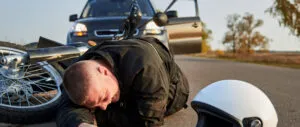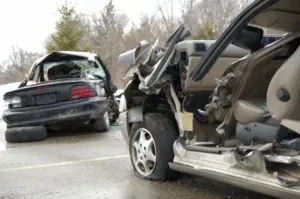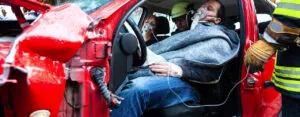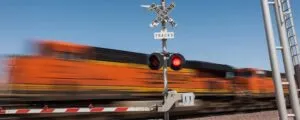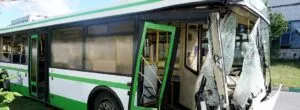Train Accident Attorney
Look for a train accident lawyer that will fight for maximum compensation for your injuries
While train travel and rail transportation are very safe in general, train accidents happen. Huge, powerful, fast-moving trains are a dangerous mix with cars and people on the city streets. It is often at train crossings, where the paths for cars and trains intersect, that train accidents occur.
What Do I Do If I Suffered Injuries In A Train Accident?
If you sustained injuries in a train accident, then to determine if you can bring a lawsuit, you should schedule a free consultation with an attorney at a personal injury law firm. A free case evaluation with a knowledgeable train accident lawyer allows you to understand your legal rights and options. The motor vehicle accident lawyers at My Rights Law are devoted to helping train accident victims obtain financial compensation and justice. Our law firm is here for you when you need us. To learn more about how we can help, feel free to call (888) 702-8845 or contact us through our secure web form to consult with a skilled train accident lawyer today.
Trains Today
It’s sometimes hard to understand the true value of the work that trains accomplish in our modern world, especially since we typically don’t see trains at work. Trains mostly do their important work out of sight of everyday car and city activity, although they are always a presence in certain areas of cities and interstate highways.
And while some commuters may ride a train to work almost every day, other Americans might never have been on a train in their life. These opposing experiences of modern life are due partly to the widespread popularity of private cars, as well as to the growth of relatively inexpensive airplane travel for business and leisure. But whether you personally travel by train frequently or not at all, everyone in society benefits from trains because they deliver many of the goods that we rely on in our modern world.
Transportation
Travel by train, whether within one state or across the country, will probably involve Amtrak as it is the only cross-country passenger service. Some routes are very popular for tourists and business travelers.
Many cities have commuter trains that go from one part of town to another, giving many people an alternative to driving cars in heavy traffic and searching for available parking in a crowded area.
These trains within cities are called “light rail,” typically using overhead electric wires for power instead of large diesel engines, like city-to-city trains. Light rail trains are typically lighter and smaller than freight trains or big passenger trains and usually go a bit slower. But their presence near city streets that are busy with vehicle traffic means that there is a lot of potential for train accidents. Train accidents between light rail trains and pedestrians, bicyclists, motorcyclists, or drivers are common in cities with light rail systems.
Freight
Trains are a vital part of the modern industrial supply chain that we rely on to power our cities and factories and provide the things that we buy in local stores. Trains ship large, heavy items – like coal to provide fuel for power plants or grains for food businesses – from one side of the country to another on rail lines. Fortunately, most railroads are separated from highways and other vehicle traffic so that the risks of train accidents between cargo trains and cars or trucks is usually low.
But there are places where rail lines cross the roads that trucks, cars, and even pedestrians use. It is at these crossing areas where many train accidents occur. Other freight train accidents may happen away from the roads, like train derailments, which can involve spills of chemicals or other dangerous or toxic substances. Sometimes there are even train-to-train crashes, although these are rare.
Railroad Workers And FELA
The Federal Employers Liability Act (FELA) covers employees of train companies that operate trains that run from state to state, called interstate railroads. The operations and employees of interstate railroad companies are subject to many specific federal laws. Unlike the employees of most other companies, though, railroad workers generally don’t come within the state’s workers’ compensation system. If you work for a train company and are injured at work, you will need to file a FELA claim.
To win a FELA claim, you’ll have to prove that you were injured by a negligent act caused by the railroad company. There are many ways that a company can be negligent and cause injury: by encouraging or allowing workers to violate safety policies, not giving workers proper safety equipment for the job, giving workers incomplete or inadequate training on safety policies, or making workers do dangerous activities while overworking them for longer hours than allowed by law, for example.
Train Safety
Staying safe around trains starts with common sense. Railroad crossings are usually clearly marked, and many crossings involve a traffic barrier that activates with approaching trains. Don’t ever try to beat a train across a crossing. It’s always better to wait and let the train go through than risk a train versus car collision.
Even when you think you know the train’s schedule, such as one that you’ve lived near for a long time, it’s dangerous to assume there won’t be a train as you approach the tracks. Always treat train tracks as if a train may be approaching, and proceed with caution.
Responsibility For Train Accidents
There are a few people or companies who may be responsible when a train accident causes injuries. Most train accidents are investigated by various different law enforcement and investigative agencies, so it is important to be aware of all the reports and opinions as to what could be the cause of any particular train crash. An experienced train accident lawyer will be able to sort through the confusion.
Train Operators and Employees – The crews that keep the trains going are skilled and qualified professionals, but they still can make mistakes. Whether it’s due to overwork, exhaustion, distraction, or something else, humans make mistakes, and when trains are involved, tragedies may happen as a result.
Train Companies and Managers – The owners and executives who oversee train companies have a responsibility to keep their equipment safe and make sure that their employees don’t act negligently or dangerously. As common carriers, train companies have duties to the public to operate safely and avoid causing harm. When a train accident happens, questions need to be asked about why the crash occurred and what decisions could have been made differently within the train company.
Car and Truck Drivers – In the places where train and vehicle traffic come together, it is up to both sides to stay safe, but it’s especially important for car drivers to be careful, to look closely, and to avoid dangerous situations with a train. Many train and vehicle crashes involve a driver who thought there was time to cross the tracks or who didn’t anticipate a problem that left them exposed to the train.
Government Agencies – The roads and transportation departments within state and local governments have responsibilities for some conditions surrounding train tracks. State or local governments can be legally responsible if those conditions lead to a crash.
Equipment Manufacturers – Train accidents can be caused by a defective mechanical part of the train, leading to the crash. When the evidence shows that a faulty part may share the blame for a train crash, the company that manufactured and supplied the item could be held liable.
Wrongful Death
Many train accidents are very severe and cause serious injuries and death. If you’ve lost a loved one in a train crash, a successful wrongful death claim can help you pay final expenses like funeral and burial costs, as well as recover the amounts that the deceased would have earned in wages and compensate you for loss of support and care. But railroad law can be complicated, so it is important to get good advice from a skilled attorney to understand your rights.
Damages
In the law, the term “damages” refers to the amount of money you are awarded in court to help you make up for the costs of the accident and your injuries. Damages include both economic and non-economic damages. “Economic damages” are for costs like medical bills, lost wages, and property damages like a smashed car.
“Non-economic damages” are for the pain and suffering you’ve been through, which may include things like anxiety, post-traumatic stress disorder, sleep disturbances, and other psychological results of being injured. Non-economic damages also cover other serious, life-altering injuries that leave permanent disability, like loss of limbs, burns, and scars.
In some extreme cases, a court may order a defendant to pay “punitive damages.” These damages are meant to punish extremely malicious, dangerous, fraudulent, or otherwise egregious illegal activity if the evidence shows that there was this type of wrongdoing in your case.
Limitations
You have a limited window of time in which to bring a case for your injuries from a train accident. Basically, every legal claim has a time limit, called a “statute of limitations,” that restricts how much time you have to file your case in court.
Train accidents are complicated and could involve many people and companies as parties in the case. The combination of federal and state laws, as well as government agencies that may be involved in the case, make it even more urgent to get a case started soon. Where a government agency is involved, you may have as little as six months to file a notice of your intention to bring a claim. A lawyer experienced in railroad law will help you understand your rights and options.
Train Accident Lawyers
At My Rights Law, our train accident attorneys are experienced at protecting the rights of those who have suffered injuries because of bad train operators. We understand the life-altering nature of these injuries and represent victims in getting compensation and justice from those who are at fault. Specifically, our attorneys will carefully examine your situation and advise you about your legal options, including how you can obtain damages from the wrongdoer. Our train accident lawyers will aggressively pursue all remedies. To find out more about how we can help, feel free to call (888) 702-8845 or contact us online to consult with a skilled train accident attorney today.








